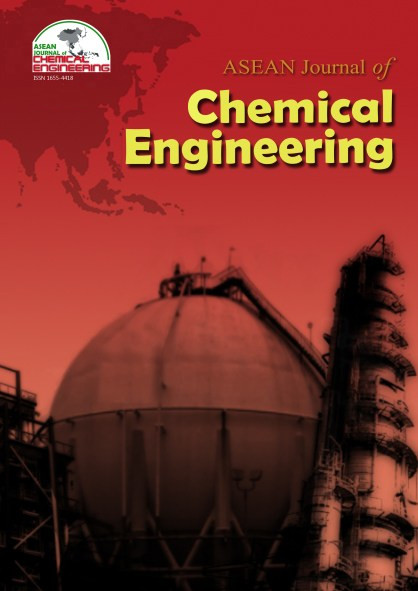Intermittent Hot Air, Dehumidified Air, Heat Pump and Convective Cum Vacuum Microwave Drying Characteristics and Models
Abstract
An intermittent hot air dehumidified air dryer, a heat pump dryer and a convective vacuum microwave dryer was designed and manufactured to dried fruits product. Fresh apple, pear, ciku, papaya and mango were chosen as raw materials. The decreased of moisture ratio with drying time were modeled using semi-empirical Page equation. This model gave excellent fit for all experimental data with coefficient of determination higher than 0.9882. In addition, drying characteristics of fruits dried using convective vacuum microwave (C/VM), cyclic temperature profile (CTP), step-up temperature profile (STP) and heat pump (HP) dryers can be obtained from the analysis of model parameters. Drying characteristics versus moisture content curve were used to verify the parameter asymptotic value. Drying characteristics exhibited by various fruit samples in this study were first falling rate periods, second falling rate periods, increasing rate periods, constant rate periods and initial transient periods depending on the application of processing and tempering. The application of convective cum vacuum microwave (C/VM) in drying of fruits gave the shortest drying time compared to other drying methods. The effective diffusivity value obtained by C/VM was between 7.08 x 10-8 to 4.30 x 10-6 m/min, which is relatively high compared to fruits dried using other drying methods (2.07x 10-8 to 5.93 x 10-8 m2/min). The results revealed that the drying time for fruits undergone C/VM drying were 50% shorter compared to samples undergone CTP, STP and HP drying. Total drying time needed was between 310 to 490 minutes for drying of selected fruits using C/VM dryer.References
2. Kaensup, W., Chutima, S., & Wongwises, S. (2002). Experimental study on drying of chilli in a combined microwave-vacuum-rotary drum dryer. Drying Technology, 20, 2067–2079.
3. Pal, U.S., Khan, M.K., & Mohanty, S.N. (2008). Heat pump drying of green sweet pepper. Drying technology, 26, 1584-1590.
4. Sham, P.W.Y., Scaman C.H., & Durance, T.D. (2001). Texture of vacuum microwave dehydrated apple chips as affected by calcium pretreatment, vacuum level, and apple variety. Journal of Food Science, 66, 1341-1347.
Copyright holder for articles is ASEAN Journal of Chemical Engineering. Articles published in ASEAN J. Chem. Eng. are distributed under a Creative Commons Attribution-NonCommercial 4.0 International (CC BY-NC 4.0) license.
Authors agree to transfer all copyright rights in and to the above work to the ASEAN Journal of Chemical Engineering Editorial Board so that the Editorial Board shall have the right to publish the work for non-profit use in any media or form. In return, authors retain: (1) all proprietary rights other than copyright; (2) re-use of all or part of the above paper in their other work; (3) right to reproduce or authorize others to reproduce the above paper for authors’ personal use or for company use if the source and the journal copyright notice is indicated, and if the reproduction is not made for the purpose of sale.


